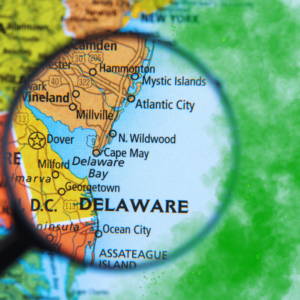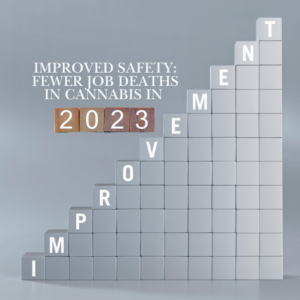Cannabis Industry Seeks Expertise from Trump Transition Alum

U.S. Cannabis Industry Lobbies for Rescheduling Amid Regulatory Shifts
The U.S. Cannabis Council has taken a significant step in its advocacy efforts by hiring Mercury Public Affairs to lobby on cannabis industry-related issues. Bryan Lanza, a seasoned political strategist who previously served as communications director for President-elect Donald Trump’s transition team, will lead the lobbying efforts. This move underscores the growing importance of federal policy changes in shaping the future of the cannabis industry, which finds itself at a crossroads as the Biden administration pushes for rescheduling reforms.
Cannabis Rescheduling Gains Momentum
In May, the Biden administration initiated a formal rulemaking process to reclassify marijuana from a Schedule I drug, which is categorized alongside substances like heroin and LSD, to a Schedule III drug. This change would mark a significant shift in federal cannabis policy, acknowledging marijuana’s medical applications and reducing the stigma associated with its use. Schedule III drugs are recognized for having moderate to low potential for abuse compared to Schedule I substances.
The potential reclassification has sparked optimism within the cannabis industry, as it would likely ease restrictions on research, improve banking access, and reduce tax burdens for cannabis businesses. However, this transition also sets the stage for the incoming Trump administration to influence the next phase of cannabis policy.
Trump Administration’s Role in Shaping Cannabis Policy
Donald Trump has expressed support for the rescheduling of cannabis, signaling potential bipartisan momentum for reform. His Department of Health and Human Services nominee, Robert F. Kennedy Jr., and Attorney General pick, Matt Gaetz, are vocal advocates for marijuana legalization, adding further weight to the possibility of significant policy advancements under a Trump administration.
Industry stakeholders see this period as a pivotal opportunity to solidify regulatory frameworks that support business growth while addressing public health and safety concerns. Lanza’s expertise in political communications and his connections within conservative circles could play a critical role in building bipartisan support for cannabis reforms on Capitol Hill.
Other Industries Intensify Lobbying Efforts
While the cannabis industry navigates its complex regulatory landscape, other sectors are also ramping up their lobbying efforts in Washington, D.C., reflecting a surge in corporate interest in federal policymaking.
In the transportation sector, NLX Railroad has hired DGA Group to enhance its visibility in Congress and the federal government. The firm is advocating for increased federal support and grant funding for a large-scale rail project in Minnesota. Brett Scott, a former senior official at the Department of Transportation and an alum of the House Energy and Commerce Committee, is leading the lobbying initiative.
Simultaneously, Uber has enlisted TheGroup DC to address issues related to the future of work, transportation safety, and the on-demand economy. Jorge Aguilar, a former press secretary and director of Hispanic media for Speaker Emerita Nancy Pelosi, is one of the key lobbyists managing the account. Uber’s lobbying efforts come amid growing scrutiny of the gig economy and its implications for worker rights and benefits.
Copyright and Trade Concerns Drive Advocacy
Copyright and intellectual property issues remain a focal point for legislative advocacy. The Recording Industry Association of America (RIAA) has hired Iggy Ventures to lobby for updates to the Anticounterfeiting Protection Act, a landmark law enacted in 1996 to combat counterfeit trademark goods. Patrick Lane, who brings experience from 21st Century Fox and the U.S. Chamber of Commerce, is spearheading the effort to modernize intellectual property protections in the digital age.
Meanwhile, in the realm of trade policy, the clothing company Quince has partnered with The Smith-Free Group to address concerns over import duties. With former President Trump’s renewed calls for steep tariffs on imported goods, including a proposed 60% tariff on Chinese imports, companies are bracing for potential disruptions to their supply chains. Max Becker, a former coalitions coordinator for the House Republican Conference, is advocating for policies that mitigate the impact of these trade measures on businesses like Quince.
Implications for the Cannabis Industry
As federal rescheduling efforts move forward, the cannabis industry faces both opportunities and challenges. Reclassification to Schedule III could unlock significant benefits, including improved access to banking services and the elimination of Section 280E tax penalties, which currently prevent cannabis businesses from deducting operating expenses.
At the same time, the industry must navigate potential political and regulatory hurdles. The rescheduling process, while promising, is inherently complex and requires coordination among multiple federal agencies, including the Drug Enforcement Administration and the Food and Drug Administration.
Lanza’s involvement in lobbying efforts signals a strategic push by the U.S. Cannabis Council to ensure that industry priorities are effectively communicated to policymakers. His background in political strategy and experience working with the Trump administration could provide valuable insights into navigating the shifting political landscape.
A Broader Push for Policy Reform
The cannabis industry’s lobbying efforts are part of a broader trend of heightened corporate advocacy in Washington. With key sectors like transportation, copyright, and trade also intensifying their lobbying activities, it is clear that businesses across the board recognize the importance of federal policy in shaping their futures.
As cannabis moves closer to rescheduling, the industry must remain vigilant in advocating for policies that support its long-term growth and sustainability. The outcome of these efforts will likely have far-reaching implications, not just for cannabis businesses but for the broader conversation around drug policy reform in the United States.
In the coming months, the industry will be watching closely as the Biden administration finalizes its rulemaking process and the Trump administration prepares to take the reins. For now, the hiring of seasoned lobbyists like Bryan Lanza underscores the cannabis sector’s commitment to ensuring its voice is heard at this critical juncture.
Stay informed about the latest cannabis industry developments with Cannabis Risk Manager.











